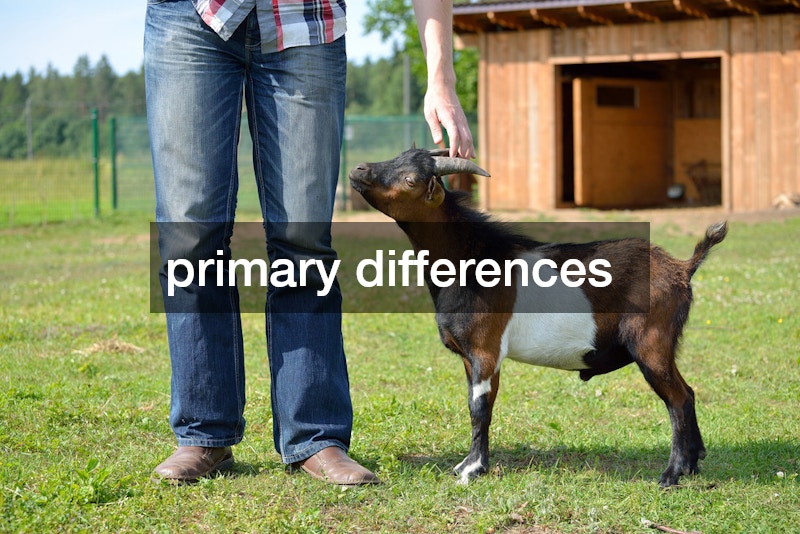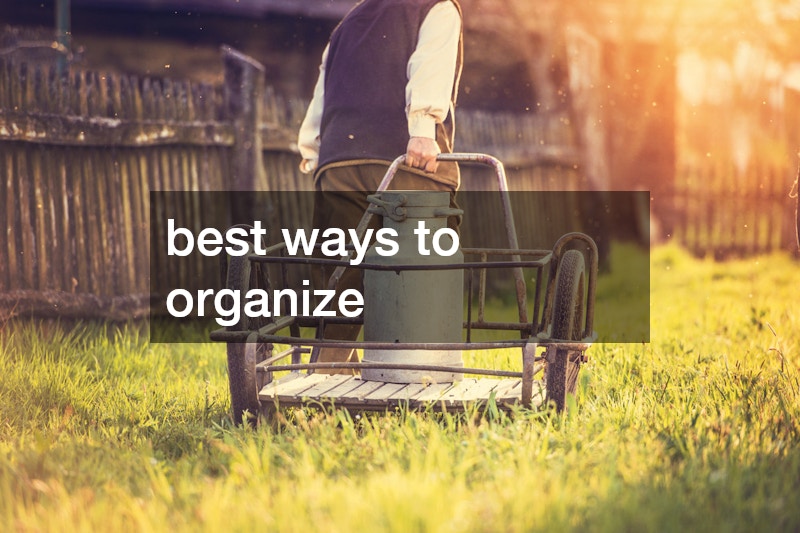Barns, sheds, and garages can be versatile spaces that offer more than just storage, providing opportunities for creativity, hobbies, and family bonding. By understanding the unique attributes of each structure, families can transform them into useful additions to their homes, tailored to specific needs and preferences. Here’s what you need to know about barn, shed, and garage usage.

What are the primary differences between barns, sheds, and garages?
Barns, sheds, and garages each have unique characteristics that suit different purposes. Traditionally, barns are larger structures often used in agricultural settings for housing livestock or storing equipment. A pole barn contractor can customize these edifices to meet specific agricultural requirements, making them highly versatile for farming families.
In contrast, sheds are smaller structures typically used for storing garden tools or outdoor equipment. They can be creatively repurposed into hobby spaces, such as a workshop or an art studio, offering a personal retreat within the property. An outdoor shed builder can help homeowners design a deluxe storage shed to supplement storage needs or accommodate specific uses.
Garages offer a middle ground, primarily designed to house vehicles but also suited for extensive storage or workshop spaces. Their size and accessibility make them ideal for garage organization, allowing families to maximize their utility. Barn, shed, and garage usage remains an essential part of modern households.
How can barns be used for agricultural purposes?
Barns have been a staple of rural life for centuries, providing essential space for farming activities. A barn builder can create a structure tailored to the unique needs of a farm, such as integrating space for animal stalls, feed storage, and equipment. These considerations help optimize the barn’s functionality, ensuring it supports the farmer’s daily routines effectively.
A well-designed barn contributes to livestock welfare, offering shelter from harsh weather conditions and a secure environment for animals. Moreover, barns can serve as multi-purpose facilities, doubling as workshops or storage areas for tools and vehicles. Engaging a pole barn contractor ensures that the barn is sturdy and meets all essential safety standards, thereby enhancing its longevity.
Beyond traditional farming, barns can also be adapted for modern agricultural practices, such as vertical farming or renewable energy projects. By incorporating sustainable practices, barn owners can reduce their environmental footprint and embrace eco-friendly innovations. This adaptability underscores the barn’s enduring relevance and versatility in contemporary agriculture.
What are creative uses for a shed?
Similar to garage usage, sheds offer endless possibilities for creative uses, transforming ordinary spaces into extraordinary personal retreats. A deluxe storage shed can double as a workshop, where family members engage in woodworking projects or craft hobbies. With adequate planning and design, these sheds become vibrant centers of creativity and productivity within the property.
Another popular option is converting sheds into garden rooms or greenhouses, which provide an ideal environment for nurturing plants. This transformation allows gardening enthusiasts to pursue their passion year-round, regardless of weather conditions. In addition, sheds can be repurposed into small home offices, offering a quiet, dedicated space for remote work.
From art studios to yoga rooms, the potential uses for a shed are limited only by imagination. These spaces serve as personal sanctuaries for relaxation, enabling individuals to pursue their interests in a private setting. Engaging an outdoor shed builder can help homeowners customize their shed’s capacity to accommodate various creative intentions.

How can a garage be optimized for vehicle storage?
Garages are primarily designed for vehicle storage, yet optimizing them requires strategic planning and thoughtful arrangement of space. Proper garage organization entails categorizing and storing items to avoid clutter and ensure easy access. Custom-built shelves, cabinets, and wall hooks can keep the space organized, freeing up room for vehicles.
With the rising popularity of electric vehicles (EVs), garages need to accommodate specific requirements for storage and maintenance. Special provisions, such as areas for storage for EV batteries and charging stations, are critical for EV owners. Ensuring the garage is outfitted to meet these needs will enhance its functionality and convenience for the family.
Garage doors and their maintenance are crucial components for a well-managed garage. It is essential to prioritize regular garage door repair to ensure smooth operation and address any safety issues. A functional and secure garage door not only protects the vehicles inside but also enhances the overall utility and reliability of the space.
What safety considerations should be kept in mind when it comes to barn, shed, and garage usage?
Safety is paramount when utilizing barns, sheds, and garages due to their potential hazards. Ensuring proper ventilation and lighting is essential to prevent accidents and maintain a healthy environment. Using high-quality materials and engaging professional services like those of a pole barn contractor guarantees that structures are built to last and meet applicable safety standards.
Storing flammable or hazardous materials requires careful consideration to eliminate fire hazards. It’s essential to keep these items in secure containers and away from heat sources. Barns, sheds, and garages should feature fire extinguishers and smoke alarms, providing an immediate response to potential fire outbreaks.
Regular maintenance is critical to preserving the safety of these structures. Routine inspections and repairs, such as garage door repair, can identify minor issues before they escalate. Maintaining operational integrity not only ensures safety but also maximizes the lifespan and utility of these spaces.
How can children enjoy and safely use these structures?
Children can find delightful ways for barn, shed, and garage usage with appropriate safety measures in place. Barns offer ample space for imaginative play, such as setting up indoor playhouses or exploring makeshift farms. However, parents must supervise activities and ensure hazardous equipment or materials are out of reach to safeguard children.
Sheds can be transformed into mini clubhouses or art studios, encouraging creativity and engagement in constructive play. Providing designated areas and adequate supervision allows children to enjoy these spaces without compromising their safety. Additionally, incorporating vibrant colors or decorations can make these environments more inviting and child-friendly.
Garages can serve as controlled environments, where children can learn basic automotive care or engage in hobbies with parental guidance. Adequate garage organization facilitates supervised learning activities while preventing accidents. Furthermore, incorporating educational tools or games can make these spaces engaging and enjoyable for young family members.

What are the best ways to organize a barn, shed, or garage?
Effective organization maximizes the functionality of barns, sheds, and garages, transforming them into efficient and purposeful spaces. Creating a clear layout and categorizing items by use or frequency ensures that everything has a designated place. Utilizing versatile storage solutions such as shelving units, pegboards, and wall-mounted racks can significantly enhance the organization.
In barns, sectioning off areas for livestock, feed storage, and equipment helps maintain order and ease the daily routines of farming activities. Similarly, sheds can be organized by creating specific zones for tools, potting supplies, or craft materials. Personalizing spaces with labels and adjustable storage solutions promotes accessibility and efficiency.
Garage organization can be achieved by decluttering and restructuring space to allow unimpeded access to vehicles. Incorporating adaptable storage systems tailored to individual needs, like storage for EV batteries, enhances organization. Investing in smart storage solutions ultimately results in a more accessible, functional, and enjoyable space for the entire family.
How can barn, shed, and garage usage be accommodated for hobbies?
Barns, sheds, and garages offer adults the opportunity to indulge in hobbies by creating dedicated spaces that reflect personal interests. Establishing a hobby barn or a personalized shed can provide the solitude and comfort needed for pursuits such as painting, writing, or photography. Adding personal touches, like decoration or meaningful belongings, transforms these places into a sanctuary.
Transforming a garage into an activity-oriented space, such as a home gym or a music studio, enhances its utility beyond vehicle storage. Thoughtfully arranging equipment and integrating soundproofing materials ensures the garage remains functional and user-friendly. Outdoor spaces, like garages, yards, and sheds, can be interconnected with elements like a concrete deck waterproofing membrane to maintain usability.
Getting creative with barn interiors allows for customizations like woodcraft workshops or equestrian centers, as needs dictate. Working with a barn builder or outdoor shed builder can help tailor these spaces to accommodate specific hobby-related activities. By fostering a comfortable and personalized environment, adults can peacefully pursue their passions within these versatile structures.
What maintenance is required for each type of structure?
Routine maintenance is essential to extend the lifespan of barns, sheds, and garages, keeping them functional and safe. This includes regular cleaning, removing debris, and checking for structural damage or signs of wear. By addressing minor issues promptly, such as sealing leaks or fixing broken fixtures, homeowners can prevent costly repairs down the line and be able to maintain their barn, shed, and garage usage.
Garages frequently require maintenance for both the structure and the mechanical components, including garage doors. Regular garage door repair ensures functional and safe access, mitigating any risks of accidental injury or security breaches. Additionally, ensuring proper insulation and sealing can help maintain temperature efficiency and reduce energy costs.
In barns and sheds, adopting preventative measures like applying a concrete deck waterproofing membrane can enhance the structure’s durability. Regular inspections and servicing of features like electrical systems or plumbing are crucial for maintaining functionality. A proactive approach to maintenance promotes the longevity and safety of these valuable family spaces.

How do you decide when it’s time to build or upgrade?
Deciding to build or upgrade a barn, shed, or garage depends on various factors, including space requirements and evolving family needs. A growing family or expanding interests may necessitate additional square footage or specific features. Conducting a thorough assessment of current barn, shed, and garage usage and future requirements will help inform a well-considered decision.
Engaging professionals, such as a pole barn contractor or an outdoor shed builder, can aid in evaluating and envisioning potential projects. These experts can provide insight into customizable options or solutions that align with individual preferences and budgets. Building or upgrading is an opportunity to incorporate sustainable practices and accommodate emerging technologies.
Observing significant wear or inefficiencies in current structures can indicate the need for renovation or replacement. Upgrading garage doors, integrating energy-efficient elements, or expanding usable space are all viable options that address existing limitations. With careful planning and execution, a rebuild or expansion can enhance functionality and align with the family’s evolving lifestyle.
What are sustainable practices for using these spaces?
Sustainable practices in barns, sheds, and garages contribute to energy conservation and environmental responsibility. Incorporating energy-efficient measures, such as LED lighting or solar panels, can decrease energy consumption and reduce costs. Exploring options like rainwater harvesting for barns or water-efficient gardening in sheds can further enhance sustainability efforts.
Using eco-friendly materials in construction or renovation can also be a step toward reducing environmental impact. Options such as reclaimed wood or recycled metal can decrease the carbon footprint of building projects. Including elements like a concrete deck waterproofing membrane safeguards structural integrity while utilizing resources effectively.
Implementing practices like increased insulation, efficient heating systems, and minimizing waste in garages can promote environmental health. Planning for long-term barn, shed, and garage usage and conservation efforts helps build a sustainable lifestyle that respects the planet. A welcoming approach to sustainability benefits current occupants while preserving resources for future generations.
How can I find the best professional to build
Finding the right professional to build a shed, garage, or barn involves careful research and consideration to ensure quality and durability. Start by identifying your specific needs, such as size, design, and materials. Once you have a clear vision, ask for recommendations from friends, family, or local contractors you trust. Online reviews and local listings can also provide insight into reputable builders in your area.
When evaluating professionals, look for those with experience in constructing outbuildings like sheds, garages, or barns, as these structures have unique requirements. Verify their credentials, ensuring they have necessary licenses and insurance, as well as any specialized certifications for barn or shed construction.
Request estimates from at least three professionals to compare pricing, but remember that the lowest bid isn’t always the best option. Ask for a portfolio of their past projects to assess craftsmanship, and inquire about their timeline and approach to handling potential challenges, like weather delays or material shortages. Finally, secure a contract that outlines all details, including costs, schedule, and any warranties. Taking these steps will help you find a skilled professional who can bring your project to life with quality results.
Barn, shed, and garage usage can cater to various family needs and improve overall household functionality while emphasizing creativity, safety, and organization. By understanding and leveraging the unique attributes of each space, families can enhance their living environments in meaningful ways. Thoughtful planning and collaboration with experts support maximizing the potential of these structures to accommodate, inspire, and evolve with family life.